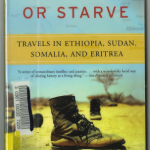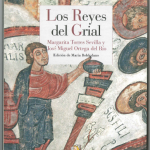Les cités magiques / Jean-Michel Angebert. (OCLC #1503805)
This book describes seven magic cities, whose names are not in the title of the book. We would also not generally include all of them as subject headings, because of the rule of three; they are summarized by the single heading:
650 _0 ǂa Cities and towns ǂv Miscellanea.
For subject access by individual cities, our best bet is to count on keyword access via the contents note:
505 0_ ǂa Thèbes, cité royale -- Jérusalem, cité sainte -- Rome, la
ville éternelle -- Prague, la ville aux cent tours -- Machu-Pichu,
la cité perdue des Andes -- Bénarès, la ville sacrée -- Lhassa et
son double : Schamballah.


